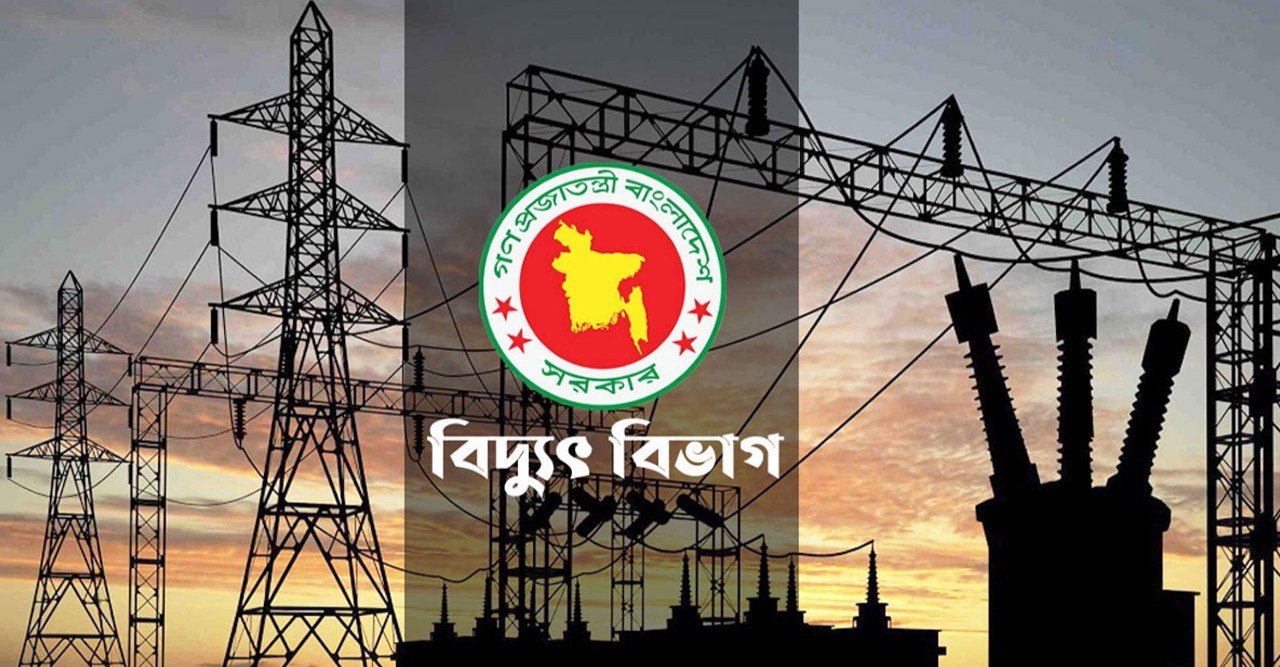
2400 crores of electricity loss at source, demand for withdrawal
Siam Islam প্রকাশিত: ১৯ ডিসেম্বর, ২০২৪, ০৯:১৮ এএম

The power department has written to the National Board of Revenue (NBR) to withdraw the provision of deduction of tax at source at the rate of 6 per cent on the payment of power purchase to any company engaged in power distribution. The company claimed that the annual loss due to tax at source is about Tk 2000 crore to Tk 2400 crore.
According to sources in the power department, the amount of revenue received from tax at source is negligible or less than 0.5 per cent of the revenue target set by the National Board of Revenue. As a result, if it is withdrawn, there will be no significant change in the revenue of the government. Withdrawal of tax at source will reduce subsidy in power sector. As a result, dependence on loans or bonds to provide government subsidies will be reduced.
Senior Secretary of Electricity Department. In the letter signed by Habibur Rahman, it is said that according to the Income Tax Act, there is a provision to deduct tax at source at the rate of six percent on the amount paid to the Electricity Development Board or any company engaged in electricity distribution. Bangladesh Energy Regulatory Commission or (BERC) or Bangladesh Electricity Development Board (BABUBO) has not considered any kind of tax and profit considering the welfare of consumers in determining the bulk electricity sale price. Moreover, Babibo incurs huge losses every year as the cost of Babibo cannot be covered by the sales price. Losses are increasing from around Rs 2,000 crore to Rs 2,400 crore per year due to six per cent source tax.
According to the letter, Babiubo is a loss-making company and there is no scope for reconciliation with non-operating income, despite paying huge six per cent source tax, separate tax is being demanded for non-operating sector income. Electricity tariff cost of government power generation companies is fixed. Out of which the amount of energy bill is 60 to 80 percent. Of the remaining 20-80 percent fixed costs, 70-80 percent are e-loans and loan installments and 20-30 percent are operating expenses. As a result, companies are suffering from financial crunch to operate power plants due to huge amount of tax deducted at source as six per cent on the total bill.
According to the Power Department, growing industrialization and economic activities have kept Bangladesh's GDP growth stable, while increasing the demand for electricity. Current demand of electricity in Bangladesh is about 18 thousand MW, the growth rate of this demand is 11 percent per annum. On the one hand, a huge amount of money is needed to keep the production, transmission and distribution system of this amount of electricity running, on the other hand, a huge amount of subsidy is given to the government to keep the price of electricity at a bearable level within the purchasing power of the people.
In this reality, since the power sector is directly and indirectly related to the country's economy, employment, cost of living, etc., if any type of tax is imposed at any stage of the power sector's production, transmission and distribution, it affects the country's economy and life along with the overall financial condition of the power sector.
The letter also said that the six per cent income tax deducted from the companies' monthly electricity bills as per the agreement with Babibo makes the annual corporate tax far less than the tax collected at source. As a result of deduction of tax at source from the bills of the companies, the companies are likely to incur financial losses. Retaining the six per cent withholding tax would require amending the contract signed by the company with Babibo. Amending the agreement would impose a six percent tax on Babibo. This will result in financial losses to Babibo which will need to be replenished through subsidies.
According to the power department, six per cent income tax is being levied on the tariff stipulated in the power purchase agreement of Babibo and government power generation companies and an additional six per cent income tax on the bulk tariff paid by distribution companies or companies, which is double taxation.
6% tax is deducted at source from the electricity bill and the tax is reconciled with the corporate tax payable in the following year. However, since the fuel (HFO, diesel and gas) portion of the electricity bill is a PPA (Public Private Partnership) pass-through item, there is no opportunity to fully adjust the tax deducted at source against it. In case of energy import, income tax is deducted at source, so the tax is deducted twice at source. The companies are facing financial losses due to the absence of this six percent tax resource for power plants in Public Private Partnerships.
Those concerned say that the government has gradually increased the price of electricity due to the reduction of subsidy in the power sector. As the source tax is a percentage of the price of electricity, the increase in the price of electricity also increases the amount of source tax, which becomes difficult for the power sector to implement. Considering the current financial condition of the power sector, it is necessary to exempt the said six percent tax deduction at source.
